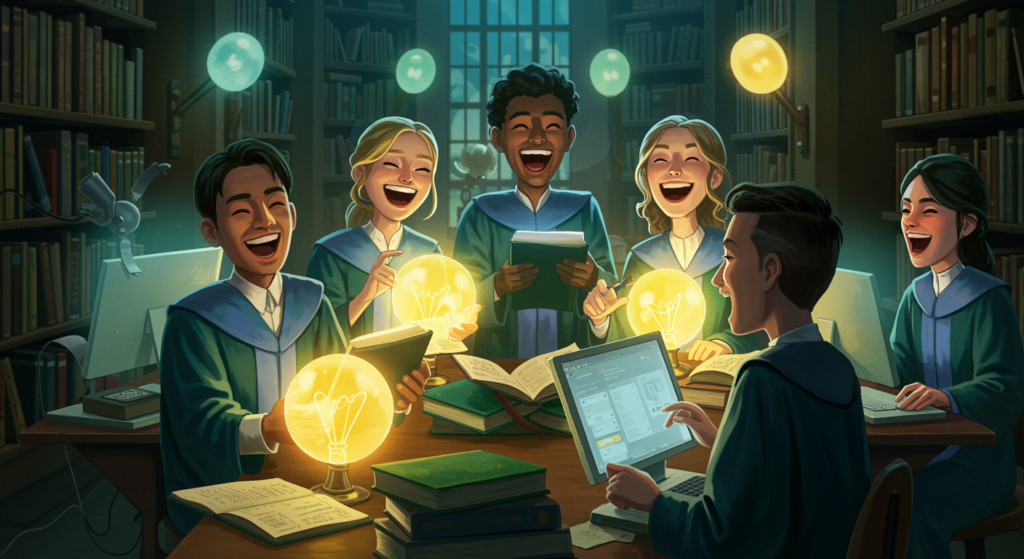
The Future of Humanities: Will The Humanities Survive AI?
Will Humanities Survive AI? The Rise and Challenges Ahead
As artificial intelligence continues to reshape industries and daily life, you might be wondering: will the humanities survive AI? This question is at the heart of ongoing debates, with AI’s ability to generate essays, analyze art, and process vast data sets raising concerns about the relevance of philosophy, history, and literature. Yet, instead of fading away, humanities are adapting, offering irreplaceable insights that technology can’t replicate on its own.
Imagine a world where AI handles routine tasks, but humans step in to provide context and ethical guidance— that’s where humanities shine. Drawing from experts at institutions like UC Irvine, we’ll dive into how these fields remain vital, fostering skills that AI can’t touch.
Why Humanities Matter: Building Resilience Against AI’s Advance
Humanities have long been about exploring human values, ethical dilemmas, and the nuances of social interactions—areas where AI falls short. While machines excel at crunching data, they lack the depth to handle the “why” behind our actions. This is why, in an era where will the humanities survive AI is a real concern, these disciplines provide a crucial counterbalance.
Think about critical thinking: it’s essential for making sense of AI-generated information in real-world contexts. Ethical reasoning helps shape policies that ensure AI is used responsibly, preventing biases from causing harm. And creative problem-solving? That’s what helps societies adapt to rapid technological changes without losing sight of cultural heritage.
- Critical thinking—teaches us to question data and uncover hidden biases, a skill AI can’t fully master.
- Ethical reasoning—guides the development of AI to align with human values, making it a force for good.
- Creative problem-solving—encourages innovative approaches to tech challenges, like designing AI that promotes inclusivity.
- Cultural literacy—builds empathy in a diverse world, something algorithms often overlook.
As noted by UC Irvine’s School of Humanities, involving these fields in AI discussions is key to addressing social and cultural impacts. Have you ever considered how a history lesson could inform better AI design? It’s not just about the past—it’s about shaping a better future.
How AI Is Transforming Humanities Education
Far from being overshadowed, humanities education is evolving to incorporate AI, turning potential threats into opportunities. Universities are innovating curricula to address whether will humanities survive AI by blending technology with traditional studies.
Exploring AI Literacy in Humanities Curricula
Leading schools are now offering courses that mix AI with humanities, helping students become savvy users and critics. For instance, Arizona State University’s writing programs teach guidelines for using generative AI responsibly, ensuring students cite tools like ChatGPT without losing their original voice.
This approach not only prepares learners for a tech-driven job market but also reinforces the question: will humanities survive AI through adaptation? Research from various studies shows that when students experiment with AI, they gain a deeper appreciation for ethical dimensions, like maintaining authenticity in their work.
- AI-infused courses at places like ASU help students analyze texts with tools that reveal patterns, while humanities teach the importance of context.
- Interdisciplinary panels discuss how AI is redefining originality, encouraging debates on what makes writing truly human.
Here’s a tip: if you’re a student, try using AI as a brainstorming partner, not a crutch. It can generate ideas, but you’ll need humanities-honed skills to refine and humanize them.
Navigating Challenges: When AI Meets the Humanities Classroom
Integrating AI isn’t always smooth—there are hurdles, like the risk of over-reliance on AI for assignments, which could erode original thinking. Experts like historian Johannes Steizinger warn that chatbots might shortcut the deep learning processes that build critical skills.
Other issues include algorithmic biases that reflect cultural blind spots, potentially skewing educational outcomes. But what if we flip this? By addressing these problems head-on, we can strengthen humanities’ role and ensure they will survive AI’s influence.
- The potential loss of deep reading habits, where students skim AI summaries instead of engaging fully with texts.
- Biases in AI systems that might favor certain perspectives, highlighting the need for humanities to promote balanced views.
Have you noticed how AI can sometimes miss the emotional depth in a story? That’s where humanities step in, teaching us to value nuance over efficiency.
Opportunities for Growth: AI as a Partner in Revitalizing Humanities
Despite the challenges, AI offers exciting chances to breathe new life into humanities. Scholars like Laurent Dubreuil suggest it could reinvigorate fields by enabling advanced analysis of texts and artifacts at scales previously unimaginable.
Will Humanities Thrive with AI Through Collaboration?
Yes, through interdisciplinary projects that combine AI’s power with humanities’ insight. Digital humanities initiatives, for example, use AI to uncover historical patterns, while experts ensure the interpretations are ethically sound.
- Collaborations between computer scientists and humanities scholars lead to more transparent AI systems.
- Conferences and panels foster dialogue, turning potential rivals into allies in innovation.
Picture this: a researcher using AI to translate ancient texts, then applying humanities knowledge to understand their cultural significance. It’s a partnership that could make will humanities survive AI a resounding yes.
A Balanced View: Comparing AI and Humanities Strengths
To really grasp if will humanities survive AI, let’s compare their capabilities in a simple table. This shows how they complement each other rather than compete.
| AI Capability | Humanities Strength | Synergistic Value |
|---|---|---|
| Automates text analysis and grading quickly | Fosters empathy and contextual interpretation | AI handles the basics, freeing humans to add deeper meaning |
| Generates content drafts efficiently | Evaluates authenticity and moral implications | AI as a tool for iteration, with humanities ensuring quality |
| Identifies patterns in data sets | Questions assumptions and explores “why” | Together, they drive a more comprehensive understanding |
This synergy isn’t just theoretical—what if your next project involved AI for research and humanities for insight? It’s a strategy that’s already proving effective in academia.
The Road Ahead: Partnering Humanities and AI for a Better Future
Moving forward, the key is viewing AI and humanities as partners, not opponents. Insights from University of Oregon panels emphasize the need for AI literacy that includes ethical considerations, ensuring technology serves humanity.
- AI can assist in scholarship, but humanities scholars must lead in examining its societal impacts.
- Emerging curricula are blending both, equipping students with tools to navigate this landscape.
For educators, here’s some actionable advice: incorporate AI ethics discussions into your classes to prepare students for real-world applications. What do you think—could this approach help ensure humanities not only survive but thrive?
Wrapping Up: The Lasting Impact of Humanities in an AI World
In the end, will humanities survive AI? Absolutely, and they’ll do more than that—they’ll guide its evolution. By emphasizing critical thinking, ethics, and empathy, humanities ensure AI enhances rather than diminishes human experiences.
As we look ahead, fostering this partnership is essential for a balanced future. So, what’s your take on all this? Share your thoughts in the comments, explore more on how AI is changing education, or pass this along to a friend who’s passionate about the topic.
References
1. UC Irvine School of Humanities. “Humanities and AI.” https://www.humanities.uci.edu/news/humanities-and-ai
2. The Daily Texan. “Beyond the Code: The Role of Humanities in AI’s Future.” https://thedailytexan.com/2025/03/27/beyond-the-code-the-role-of-humanities-in-ais-future/
3. Cornell University. “Book Plumbs AI’s Potential to Reinvigorate Humanities.” https://news.cornell.edu/stories/2025/04/book-plumbs-ais-potential-reinvigorate-humanities
4. University of San Diego. “Changing Face of Humanity.” https://www.sandiego.edu/cas/centers/humanities-center/interdisciplinary-curriculum/1st-at-usd/changing-face-of-humanity-su24.php
5. University of Oregon Humanities. “Five Key Takeaways: AI and Humanities Panel.” https://humanities.uoregon.edu/five-key-takeaways-ai-and-humanities-panel
6. Arizona State University. “Generative AI in the Humanities Classroom.” https://news.asu.edu/20240229-arts-humanities-and-education-generative-ai-humanities-classroom
7. RyRob. “AI Article Writer.” https://www.ryrob.com/ai-article-writer/
8. McMaster University. “Analysis: Humanities Education and Self-Development in an AI Age.” https://brighterworld.mcmaster.ca/articles/analysis-humanities-education-and-self-development-in-an-ai-age/
Will humanities survive AI?, humanities, artificial intelligence, AI and education, critical thinking, ethics in AI, future of humanities, human values, AI literacy, cultural literacy





